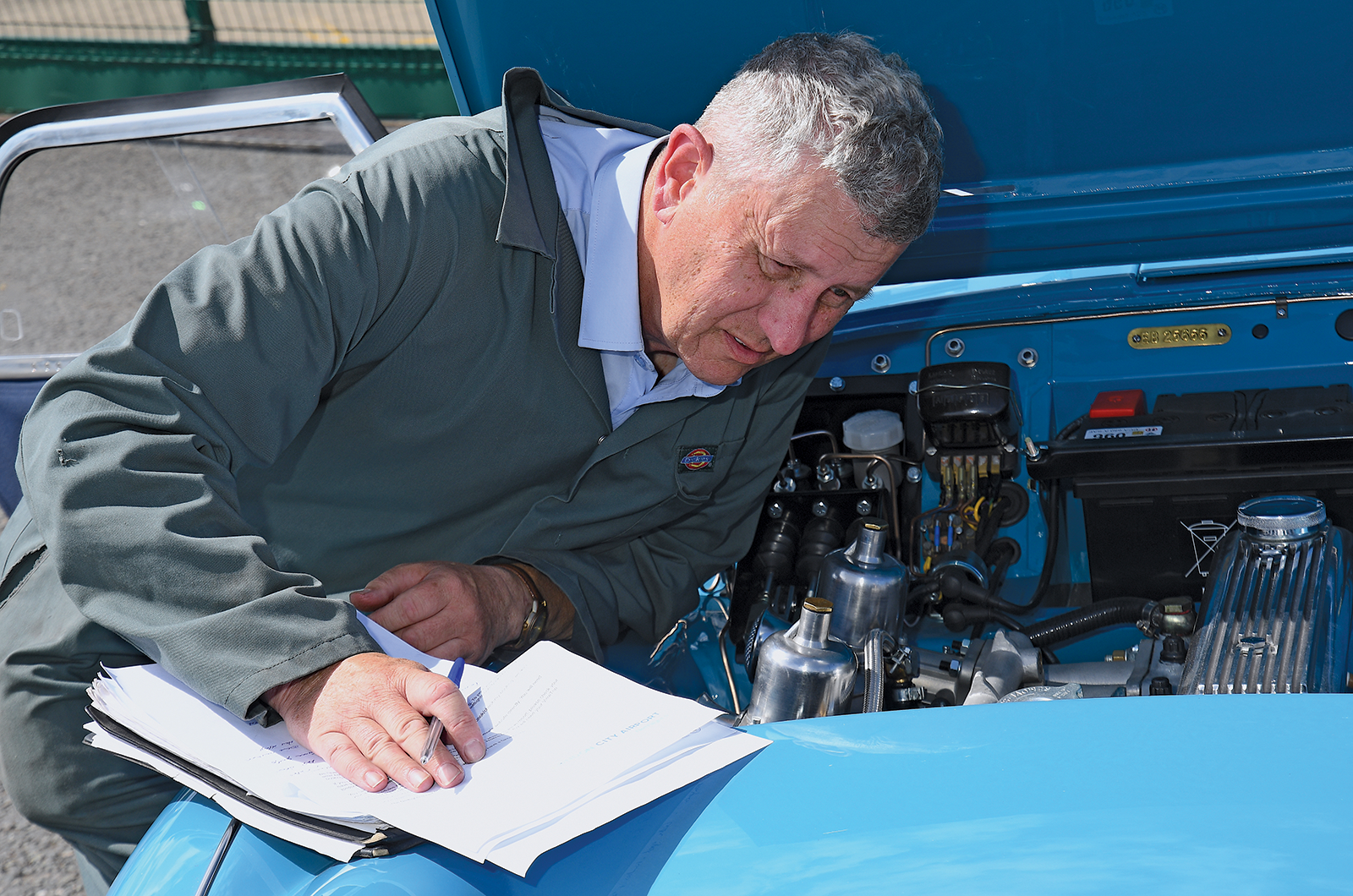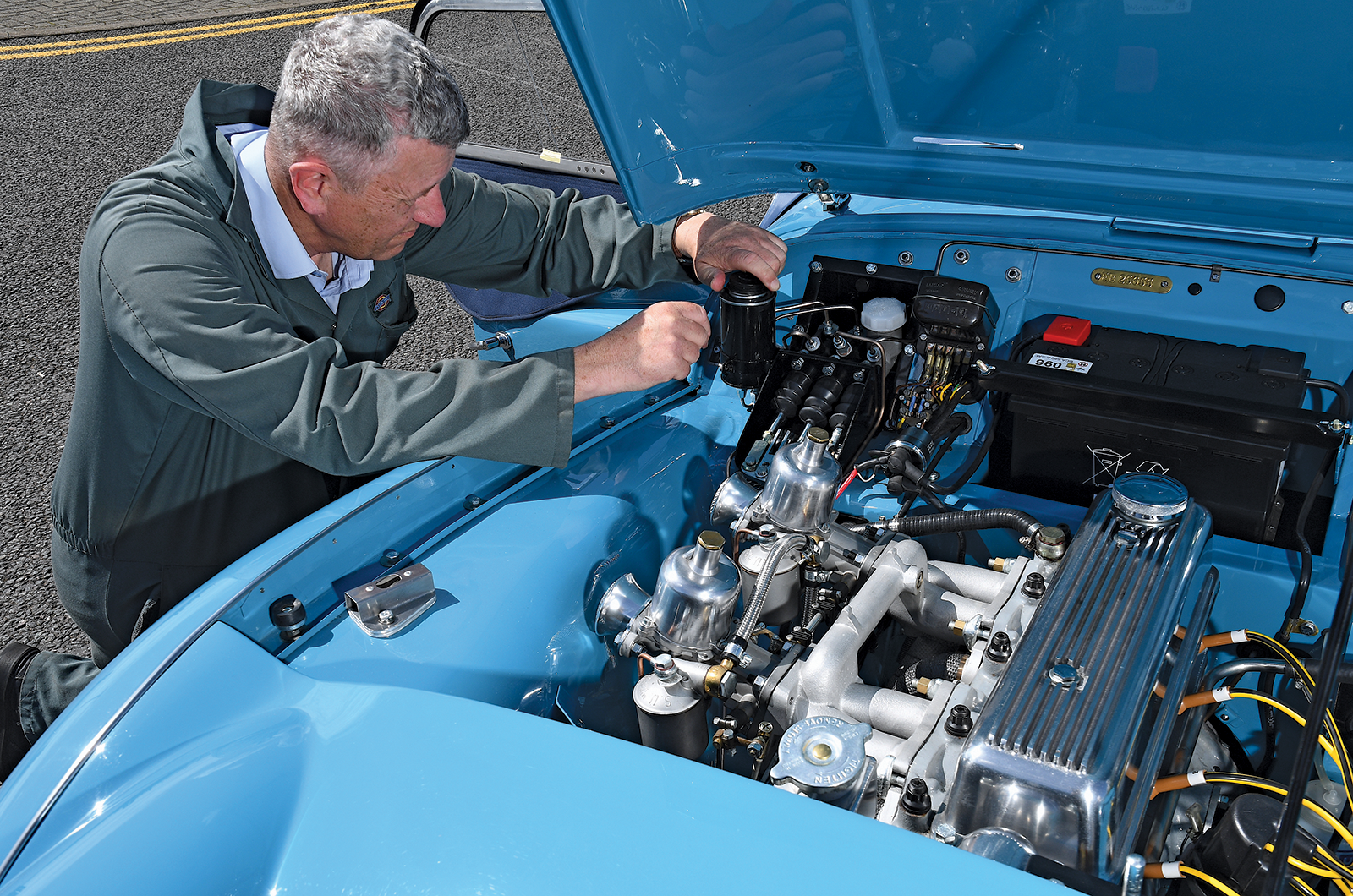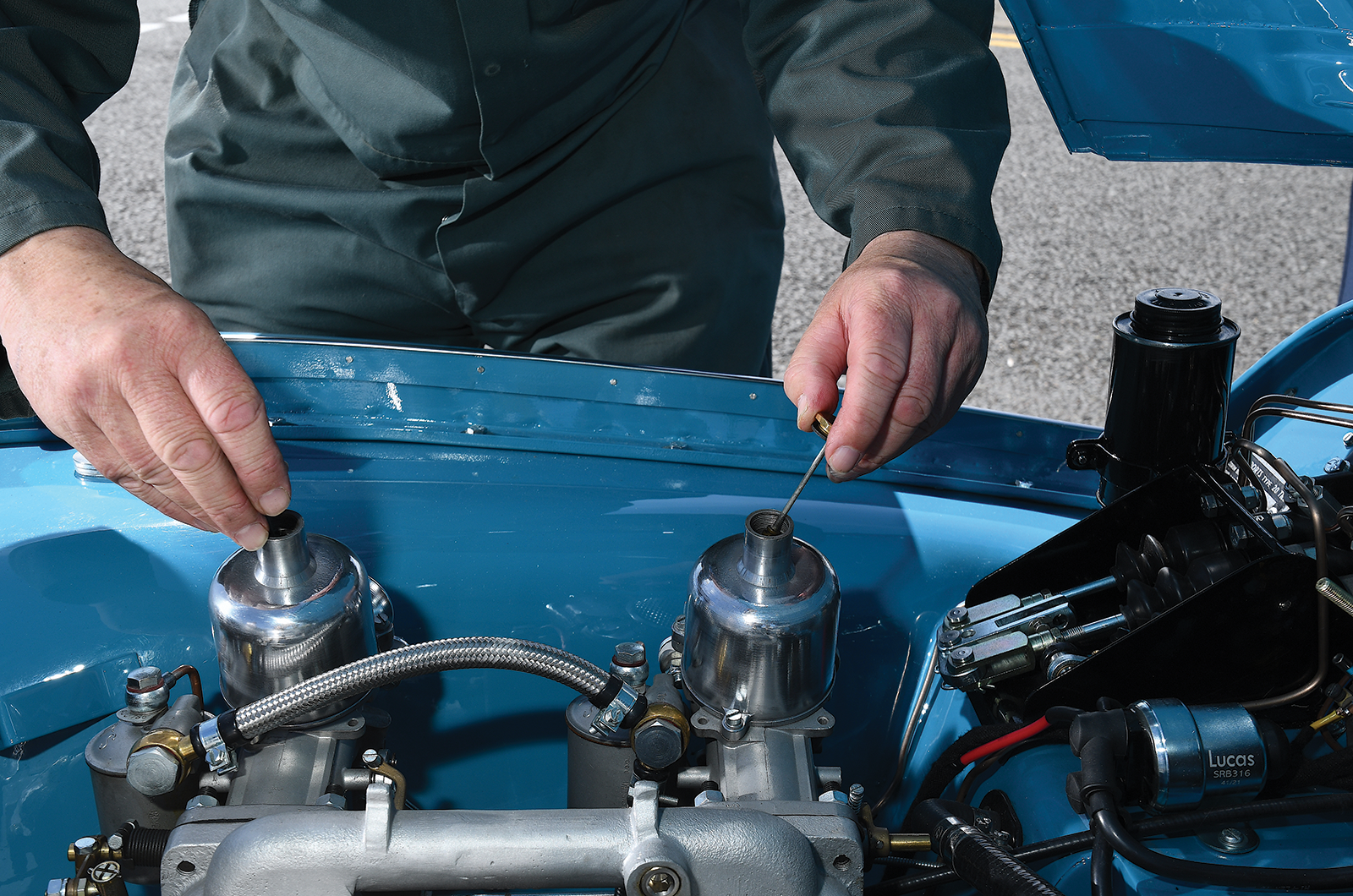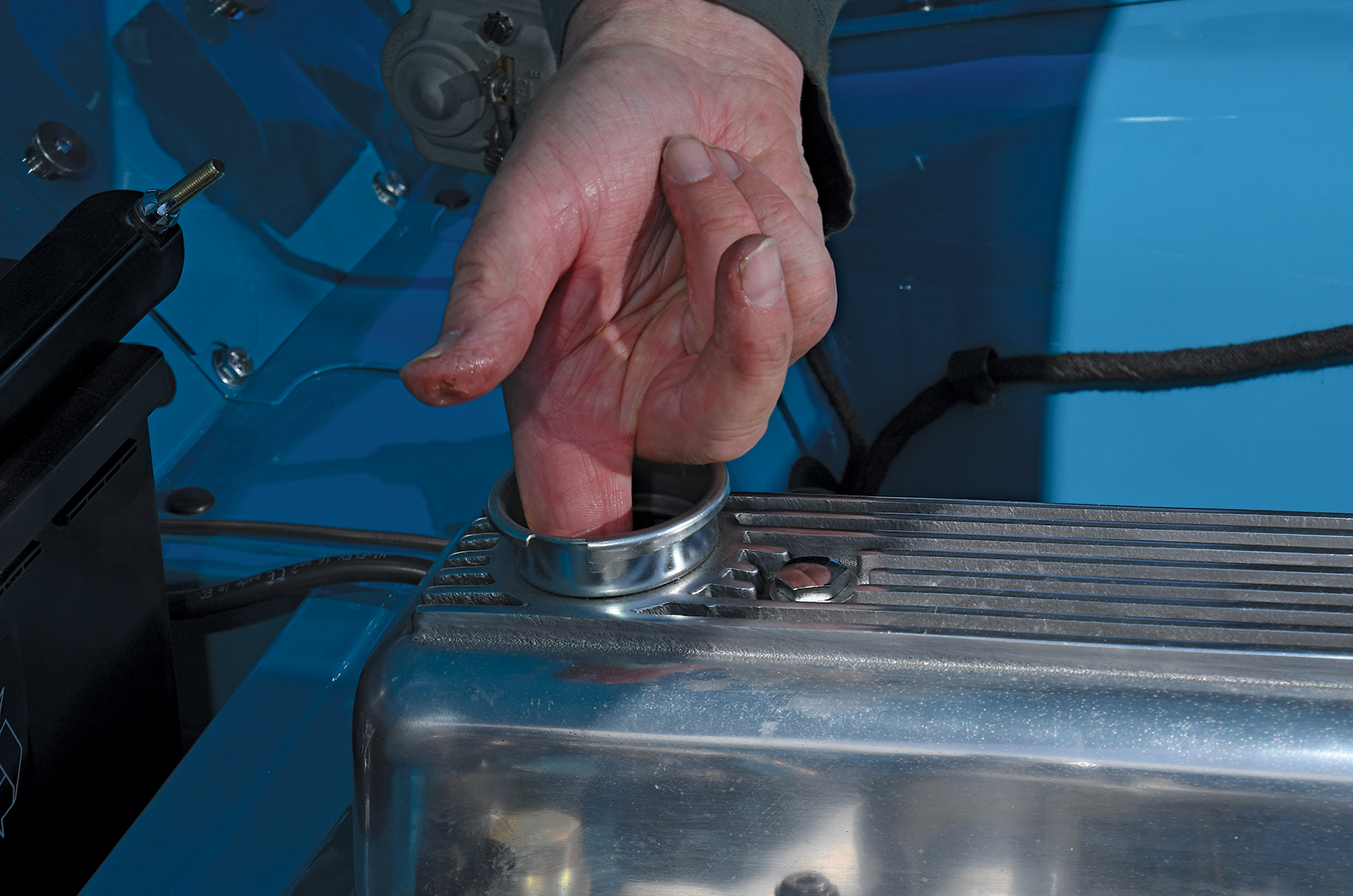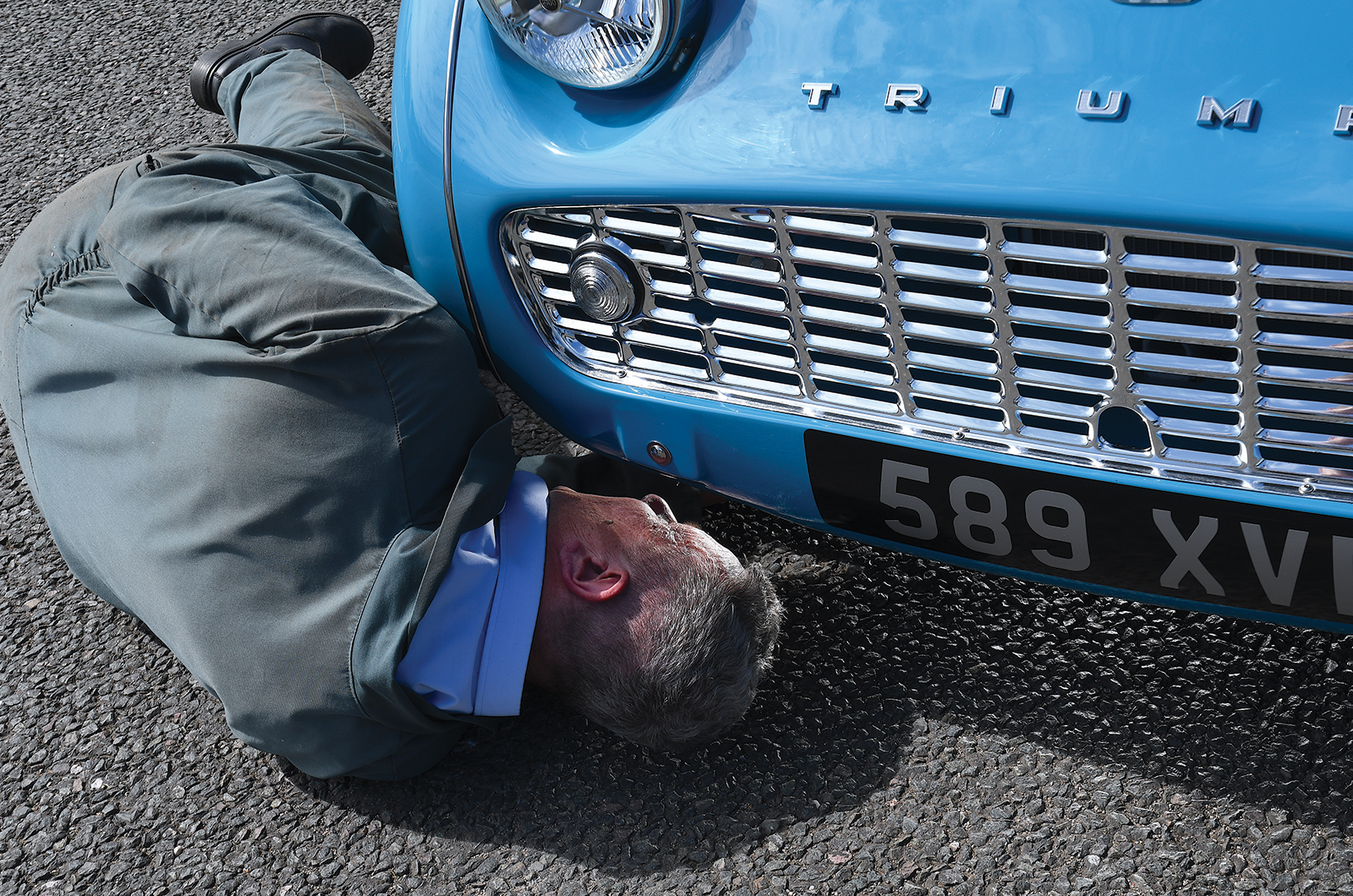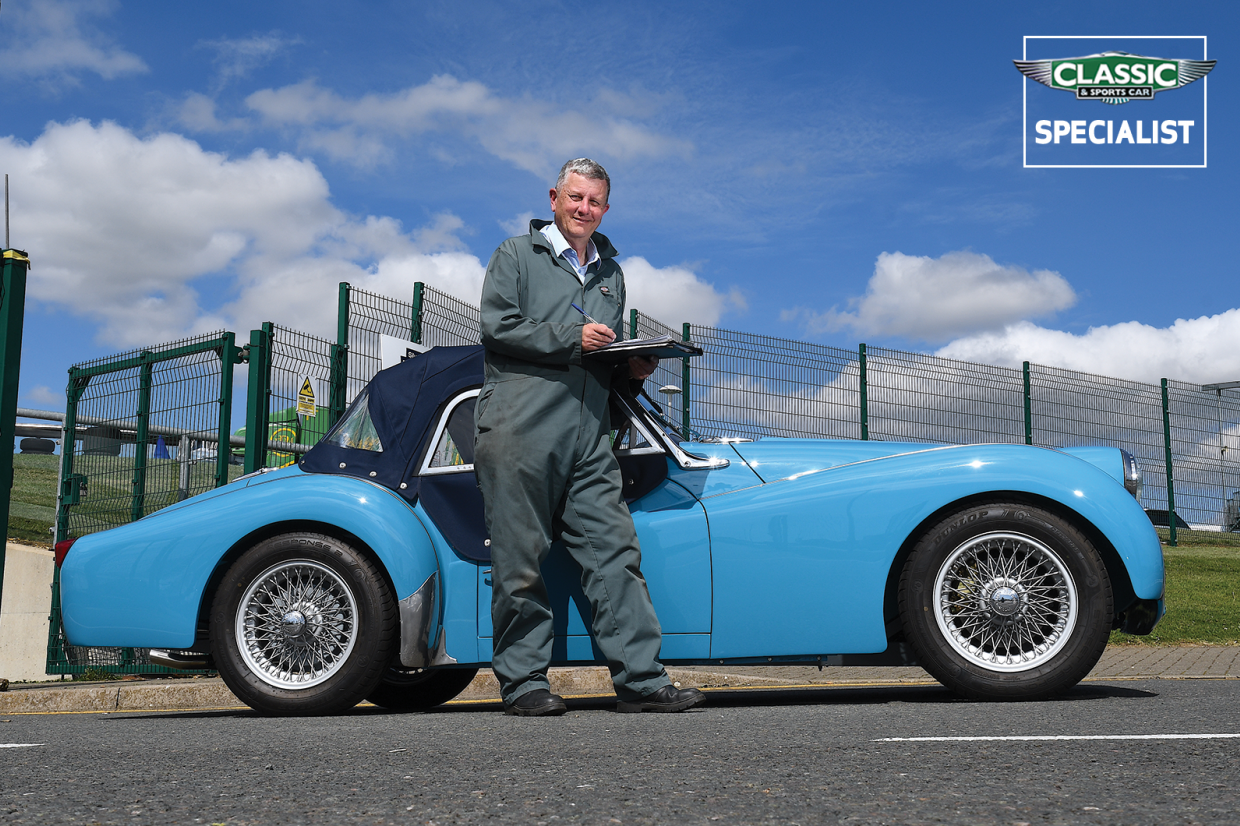
“Hear that ticking? That is the tappet on the third cylinder,” says Brian Page, poring over the engine bay.
“It needs adjusting. And it’s got a modified camshaft.”
Brian is at Silverstone circuit to inspect a 1957 Triumph TR3A for a potential buyer before it crosses the block with Iconic Auctioneers.
His company, Classic Assessments, is a one-man band that in 2023 marks 30 years in business.
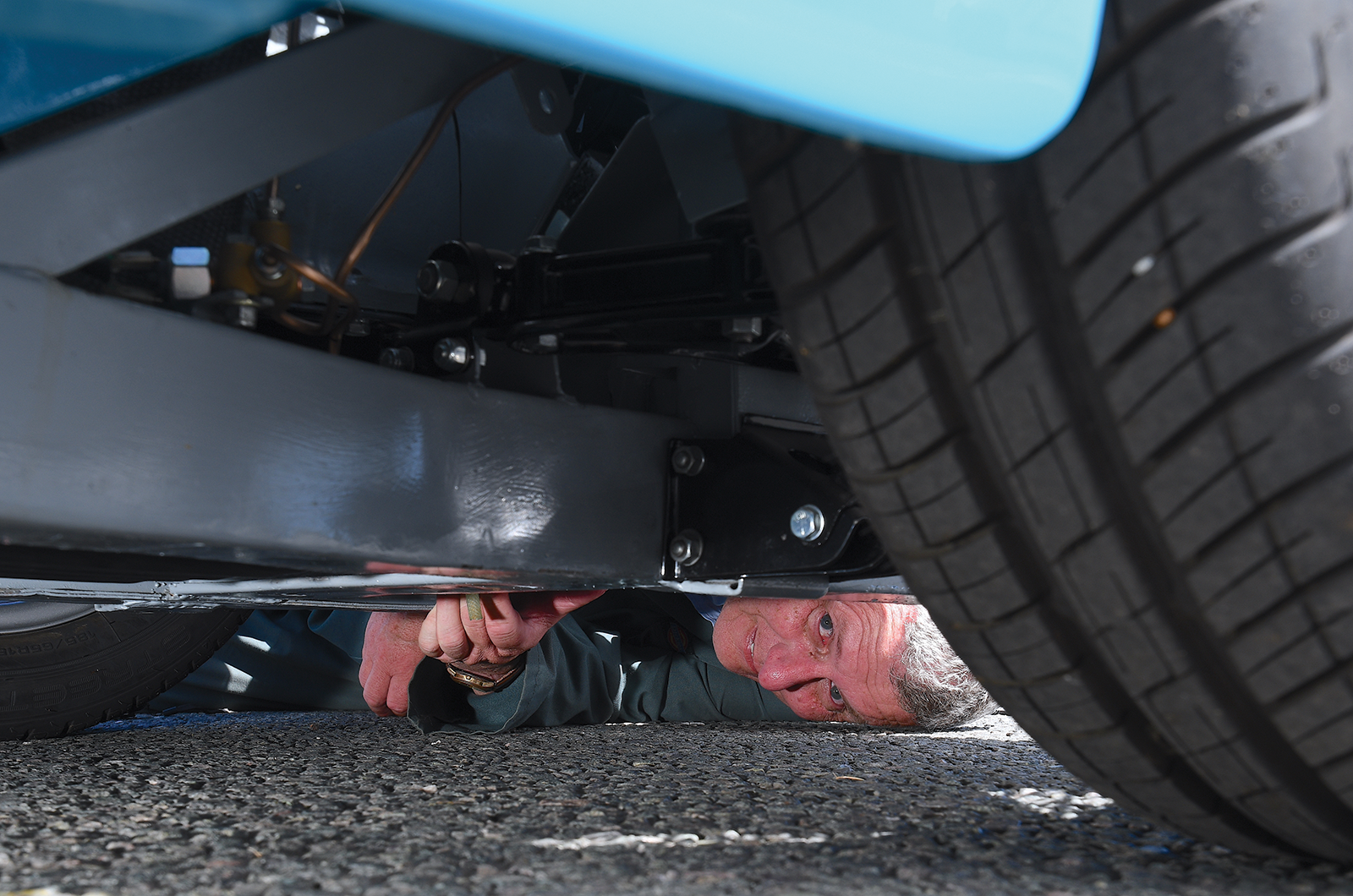
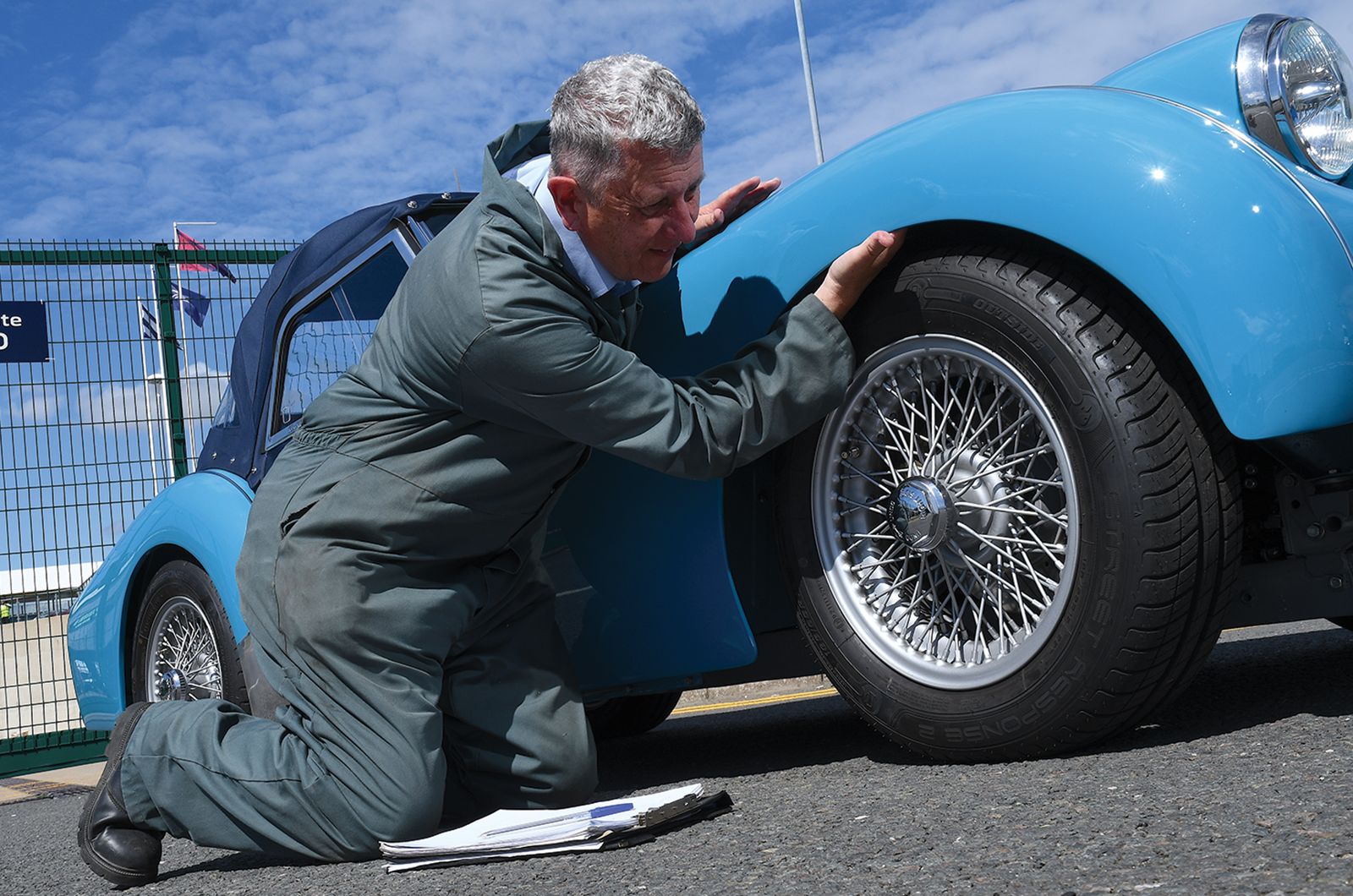
Brian discovers this Triumph TR3A has a reconditioned steering rack (left); feeling for old repairs
In that time Brian has probed around 5500 different vehicles, including more than 600 Jaguar E-types, 400 MGBs and 300 Triumph TR6s.
He travels the UK and further afield to inspect classic cars for clients, and each time he scours the exterior and interior to provide a detailed report on the vehicle’s condition.
“I’m not a mechanic,” he says. “I’m an assessor. There’s a difference.”
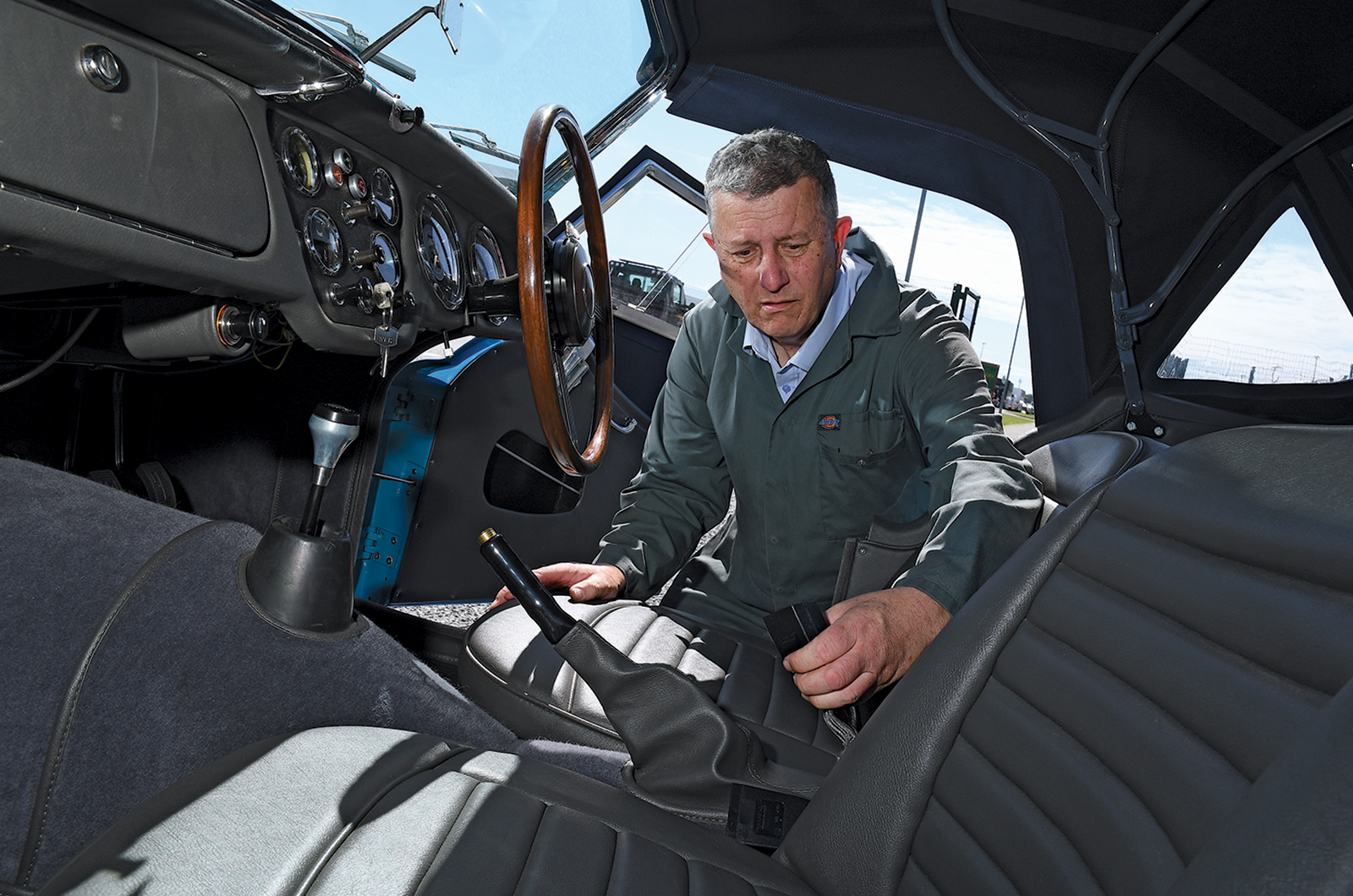
The seller has rebuilt a number of classic cars, but doesn’t like driving them

